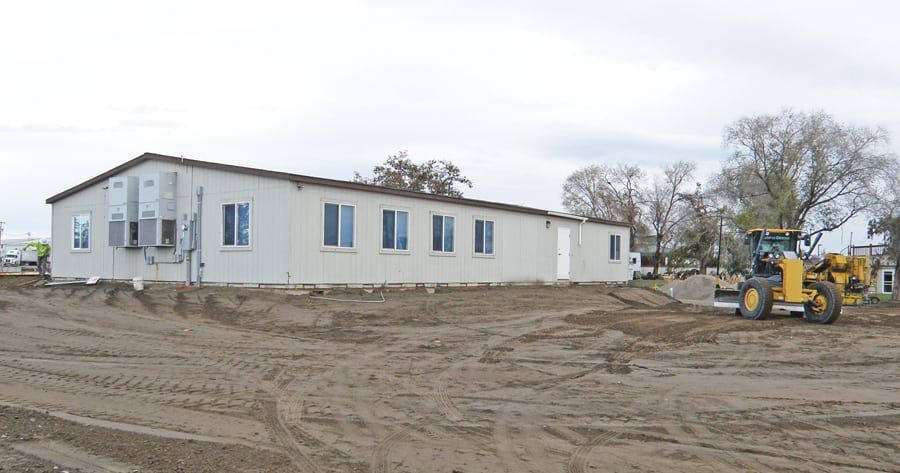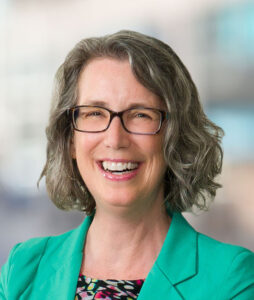
Home » Pasco Senior Center to close, programs to move to new building
Pasco Senior Center to close, programs to move to new building

December 15, 2016
The regulars at the Pasco Senior Center building soon will be 3- to 5-year-olds instead of those over 60.
The city of Pasco sold the building to the Pasco School District for $1.26 million and will be out of it by Dec. 30.
City officials say declining use of the senior center at 1315 N. Seventh St. over the past 15 years prompted the sale.
Senior programs will now share space with other city recreation programs inside a triple-wide modular building at 505 N. First Ave.
Meals on Wheels and foot care clinics along with other senior recreation programs will be located there.
“We’re not going to dedicate any space just for seniors. It’s just not successful anymore. Assisted living places provide (activities) for them now, or they just aren’t coming anymore and are more active,” said Rick Terway, the city’s director of administrative and community services.
The majority of the senior center’s programs will be moved to the newly remodeled triple-wide previously used for city storage and offices. The building adjacent to the Greyhound bus and Amtrak station is expected to open in mid-December.
“User populations have shrunk over the years. We’ll have senior programs but the facility won’t be specifically for seniors,” Terway said. “Our long-term plan is we are going to build a community center on the west end of town.”
The city will spend about $160,000 to renovate the modular building, which doesn’t have a name yet.
The city council approved the sale of the senior center, built in 1981, in June 2015.
Over the years, the city tried to hold youth events there, but Terway said “they don’t want to come there because it said ‘senior center.’”
Joseph Diaz, 74, of Pasco, spends about four hours a day at the senior center playing card games like rummy or spades. He’s been a regular for the past six years, and said he’ll continue to play cards at the new location, even though it’s farther from his house.
“Things have been slowing down and I don’t know why,” Diaz said of the center. He said part of it is the center’s fault for cutting some programs — like the gift shop and dances — a few years ago. “That place used to be packed. Every single day,” he said.
Barb Whitten, 79, of Pasco, called the sale of the building “a shame” but admits she doesn’t use the center any more. She used to regularly attend senior foot care clinics but stopped going when she learned she no longer qualified for the treatments.
“I just really haven’t done much there,” she said.
She’s one of the busy seniors Terway referred to.
Instead of socializing at the center, she meets up with a group of about 20 senior citizens for morning coffee at McDonald’s on Road 68 three times a week. She also recently joined the Red Hat Society social group and attends a monthly coffee klatch at Spudnuts in Richland.
Lucilla Castillo, 80, who has lived in Pasco for 55 years, visits the senior center every six to eight weeks for the foot care clinic, a habit she’s kept up for the past three years. “I’m happy with the place I go now,” she said.
She noted the Tri-Cities’ growth over the years when talking about the sale of the senior center.
“I lived happy in Pasco for so many years. All the Tri-Cities is a nice place to raise a family. The schools are excellent,” she said.
The city’s sale of the senior center to the school district will play a role in continuing this educational excellence by housing its early learning program under one roof, school officials say.
The Pasco School District plans to spend about $4 million to renovate the senior center into an early learning center for preschoolers ages 3 to 5.
The work begins in January and is expected to take a year, with preschoolers beginning classes there in January 2018, said Kristi Docken, the district’s director of special services and early intervention.
The early learning center — which has yet to be named — will be able to accommodate about 280 children.
The district enrolls 148 special education preschoolers and 120 preschoolers in its Early Childhood Education and Assistance Program, or ECEAP, an income-based, state-funded preschool program.
“Between those two programs, they’re using several classrooms in our elementary sites throughout the district. By putting the preschool programs in the center, we will help provide classroom space in our elementary schools, and the preschool center will provide inclusion opportunities for our preschool-age students,” Docken said.
Young children with disabilities will benefit from interactions with the other preschoolers, Docken said.
The district’s four ECEAP and seven special education teachers also will benefit from the new center as they’ll be able to better collaborate and participate in professional development opportunities, she said. It also puts the district’s additional resources together for special education such as speech services and occupational and physical therapy, Docken said.
Real Estate & Construction
KEYWORDS december 2016




